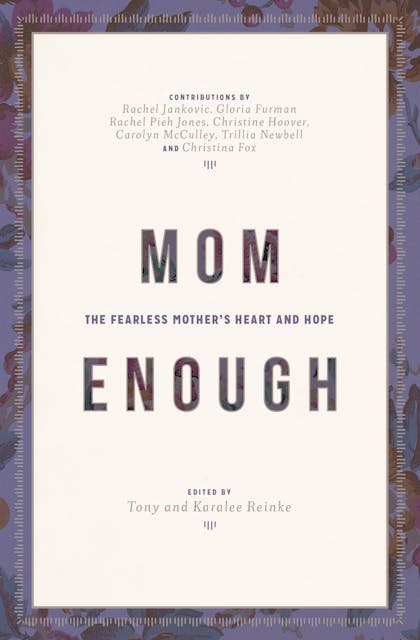Mommy Wars in the Local Church: A Parable
This parable* was told to some mothers who engaged in Mommy Wars and trusted in themselves that they figured it all out, and treated others with contempt:
Two mothers woke up and opened their Bibles to pray, one a perfect mother and the other a not-so-perfect mother.
The perfect mother prayed thus: “God, I thank you that I am Mom enough, not like other mothers who have no clue what they’re doing, or even like those whose children disobey and don’t achieve as much as mine do.”
But the not-so-perfect mother prayed, “God, help me, a grace-dependent mother whose faith is so small but whose God is so great!”
Christian and non-Christian mothers alike decry the issue of mother-to-mother destructive criticism. Their voices have weighed in by the hundreds of thousands against the “Mommy Wars.”
Many women, with cynical derision, claim this problem is more prevalent inside the church, and that is because inside the church, motherhood-related issues are more likely to be assigned a moral value, creating a game that no mother can win.
Understanding Mommy Wars
Along with Rachel, I find these Mommy Wars to be quite foreign. In fact I asked some friends back home in the States to explain how their lives were impacted. We left the U.S. before our oldest was 16 months, before DIY online stores were generating income for Proverbs 31 hopefuls, before social media sites showcased our God-given creativity with professional cameras, and before organic food was available in major grocery food stores.
Our other two children were born in the Middle East. Here, when someone asks me about my mothering, it is often in the vein of “It takes a village to raise a child, so what village are you from?” There’s little competition here, but sincere intrigue and concern.
I have been asking my friends: Are Christian mothers more violent contenders in this culturally-facilitated Mommy War? Do the moral values of Christian mothers make us more likely to throw other mothers under the bus instead of build them up in the gospel?
Moral and Non-Moral Matters
There are in fact moral values assigned to certain parenting practices described in the Bible. Ephesians 6:4 comes to mind, “Do not provoke your children to anger, but bring them up in the discipline and instruction of the Lord.” The moral value of this parenting practice is indisputable. Our moral potential for practicing this is also indisputable. We are sinners in need of God’s grace!
But most of the outrage against mother-to-mother criticism comes from the assigning of arbitrary moral values to non-moral mothering techniques or practices. Take nursing and bottle feeding for example. I have heard both of these moral judgments: “You nurse your baby? Shame on you.” and “You use bottles? Shame on you.”
When we acknowledge the heart idols of competitive mothering we can understand who fired the first shot in the Mommy War. We all did.
Mommy Wars in the Church
Christian mothers must not accept Mommy Wars in the church. Mommy Wars are a contradiction of a community founded on Jesus Christ.
God's forgiveness, and our knowing that we are forgiven sinners, frees us from the very things that spoil our relations with each other. It frees Christian mothers from the need to prove anything. It frees us from envy and one-up-mothering. It frees us from the craving for approval and praise that we seek from others. It liberates us to value each other in Christ, and to love our mother-neighbors as ourselves.
In other words, the cross makes possible the fellowship that the Mommy Wars threaten to tear down.
So-called Mommy Wars have no place among Christian sisters. Christian mothers are weak and needy for one another. Like the faithful Canaanite mother, we approach the Savior on our knees, saying “Lord, help me” (Matthew 15:21–28). That is the posture of the needy, Christian mother.
We cherish the shed blood of Jesus Christ who cleanses us from our sin and we live peaceably with one another because of the cross. Moreover, we love to boast all the more gladly of our weaknesses, so that the power of Christ may rest upon us!
We approach the Savior on our knees, and we are able to “put away all malice and all deceit and hypocrisy and envy and all slander” (1 Peter 2:1) and we can “consider how to stir up one another to love and good works” (Hebrews 10:24).
Instead of taking the next shot to slander a mother who does things differently, Jesus gives us the grace we need to adorn the gospel. Jesus gives us the grace to be reverent in behavior, teach what is good, train young women to love their husbands and children, be self-controlled, be pure, work at home, be kind, and be submissive to our own husbands (Titus 2).
* The parable is based on Jesus’ Parable of the Pharisee and the Tax Collector in Luke 18:9–14.

Mom Enough: The Fearless Mother’s Heart and Hope is a short book that explores the daily trials and worries of motherhood from the perspectives of eight women. In the trenches, they have learned (and continue to learn) how to treasure God and depend on his all-sufficient grace.
The paradox of this book is the secret power of godly mothering. Becoming mom enough comes from answering the question, “Are you mom enough?” with a firm “No. But God is God enough.”




